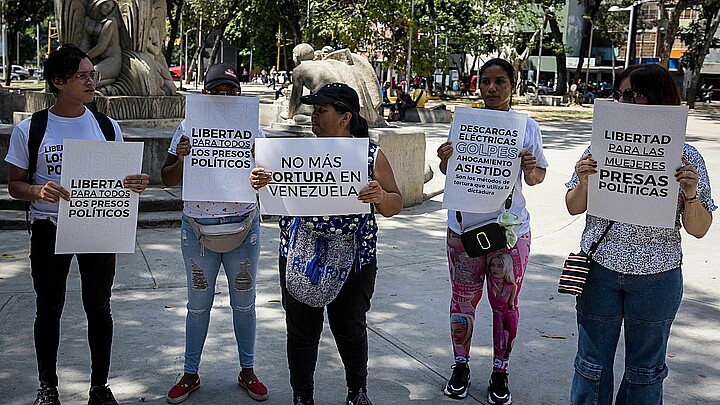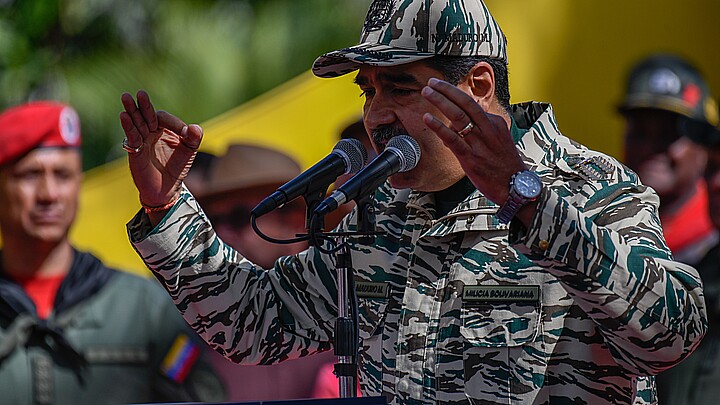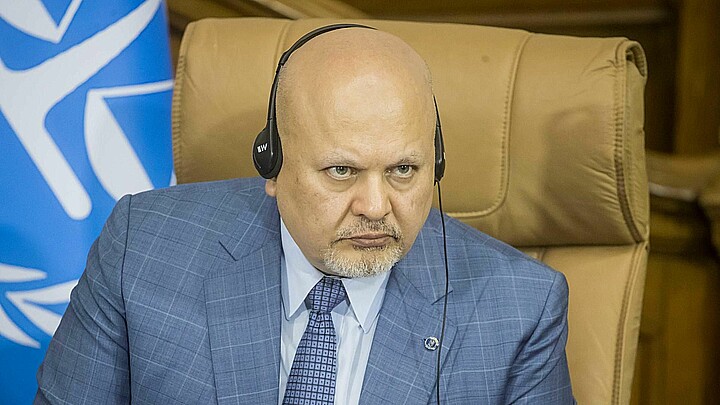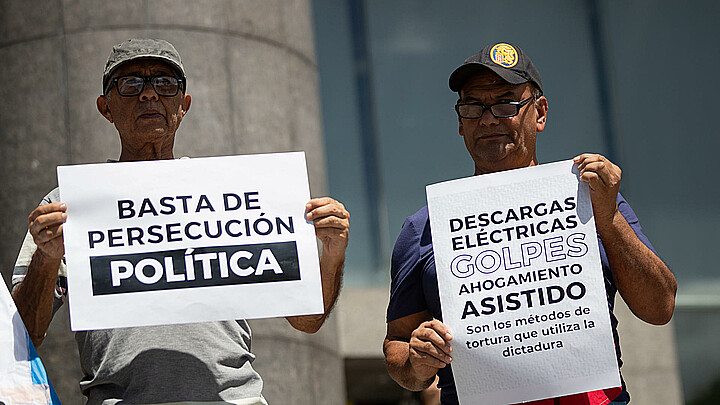Human Rights
Fear wins the day in Venezuela: Maduro’s party declares victory amidst voter intimidation and obstruction
The media is calling Sunday’s voting process the first election to include opposition parties in four years—but critics say the low voter turnout suggests the process was rigged
November 22, 2021 2:04pm
Updated: November 22, 2021 5:48pm
Nicolas Maduro’s ruling communist party declared victory Sunday night in what the media is calling the first elections in nearly four years to include pro-democracy opposition parties, but critics say the low voter turnout is evidence the election was rigged.
Sunday’s election comes after a four-year boycott in which pro-democracy parties refused to run political candidates or participate in the voting process because they did not believe the ballots would be fairly counted.
But after a drought of opposition participation, most of the country’s pro-democracy parties united under a common banner as a tactic to reignite their base and avoid splintering the opposition vote.
The result heavily favored Maduro as preliminary results from the electoral council reported his communist allies were declared victors in 20 out of 23 of the nation’s gubernatorial offices.
As a result of the purported pro-Maduro landslide and the fact that that voter turnout was only 41.8 percent, one of the lowest rates the country has seen in the past 20 years, the integrity of the election is already being questioned by international critics and organizations.
The Washington Post reported that, “With a turnout of just 41.8 percent, one of the country’s lowest rates in the past two decades, the vote reflected an electorate apathetic toward its leadership options in the crumbling socialist state.”
A Sunday ADN America report that included photos of armed soldiers at voter precincts suggests a key element in the low turnout could also be voter fear and intimidation.
ADN correspondents on the ground in Venezuela were barred from interviewing voters at precincts, and Venezuelans who were interviewed said they were turned away from voting for opaque reasons while some expressed concerns about their safety.
One Petare resident who was turned away on Sunday was told her name did not appear on a voter roll.
“I am going to go inside to see if they find me with my fingerprints, but it is strange, it has never happened to me, that I was not on the list. I don't understand what happened,” she told an ADN America correspondent on the ground.
Another would-be voter said Maduro’s presence was apparent throughout the country, particularly as voters edged closer to voter precinct areas.
“The truth is that the electoral environment is null,” one ADN America correspondent told her editor in a telephone conversation.
“It must be because of agreement [with] the international observers that the Chavistas would not wear red. There are no [groups of] people wearing red, and no motorized collectives are seen, but the presence of Chavismo is perceived in the precincts,” she explained.
Maduro, for his part, has remained undeterred by international criticism and declared victory to the entire nation early Monday morning.
“We have the whole map already, clear and drawn,” he said. He referred to his party, the United Socialist Party of Venezuela, as “a determining force in the history of this beautiful country called Venezuela.”
For the first time in four years, many of the country’s pro-democracy parties united as part of the Democratic Unity Roundtable (Unidad Venezuela) coalition (MUD) with the aim of reenergizing their supporters who throughout the past several years have started losing hope.
But facing an empowered communist regime with almost unlimited resources and control of the country’s election infrastructure proved to be an insurmountable barrier. Despite this, some opposition leaders are saying their show of force was a message to Maduro and the world that the pro-democracy movement is still alive and ready to continue fighting.
“Throughout the campaign, we said, “We are here!” and after this election, we say to them: Here we continue and we will continue working for the reconstruction of our democracy in our country,” tweeted Tomás Guanipa, on a thread from Primero Justicia, a MUD coalition member group. Guanipa, who took third place for mayor in a Caracas municipality ultimately won by a Maduro ally, added that “The reality is that the country spoke and spoke loudly, through abstention.”
More than 130 European Union observers, the first international observation group in 15 years, tried to aid the voting process, hoping to give the world a window into whether the elections were legitimate. Despite their presence, there were complaints of irregular activity, harassment, threats, and even violent attacks as the polls closed Sunday evening.
Throughout the communist country, human rights activists recorded more than two dozen instances of reporters being blocked from covering events at voting precincts and in some cases they were forced to delete pictures they had taken.
In Zulia, a region that was ripe for an opposition victory due to its many infrastructure failures, at least three people were shot by two men on motorcycles, and one was reported as killed with two others wounded. In Lara, two human rights activists trying to take photographs were surrounded and robbed by about 20 people on motorbikes.
According to the Washington Post, there were many sightings of “red points” stations set up near polling stations where Maduro agents scan identification cards of voters who receive government benefits.
Nelson Freitez, a human rights advocate who was monitoring elections in Lara state on Sunday, said he saw red points at 10 of the 12 polling centers he visited, according to the Post.
“They manage to intimidate those they have registered to remind them that if they do not vote for the government candidates, they will not receive social benefits,” he said.
The Post also reported that while Freitez and another advocate, Yonaide Sánchez, were taking pictures of one site, about 20 people surrounded their car, pushed them, tried to confiscate their phones, and even stole Sánchez’s purse while grabbing her hair.
A day earlier, outside a Caracas electoral council building, a government employee told reporters she was only voting because she was afraid of losing her monthly food benefits.
“They force us to vote or they’ll take away our food boxes,” said a woman who gave reporters only her first name, Sonia. The monthly food benefits she receives are part of a program run by the government.
“If it wasn’t for that, I wouldn’t be voting,” she reportedly said.
On Sunday, ADN America reported that internationally recognized President Juan Guaido said he was harboring doubts the elections would be “free or fair,” despite the fact his own political party, Popular Will, participated in the process. On Friday, he warned that the Maduro regime would use state resources to direct the electoral process and bar the press from engaging in objective news coverage.
He did not vote in Sunday’s elections.
In a video statement released Friday, Guaido accused the Maduro government of controlling the electoral authority, failing to release political prisoners, limiting media access and making use of public resources for the elections.
“There is no fair game,” he told the public. “We cannot in any way normalize the dictatorship.”
Maduro is currently under investigation by the International Criminal Court for crimes against humanity and has continued ruling over the collapsing country since he took power following Hugo Chavez in 2013 after he died in Caracas following an 11-year reign.










